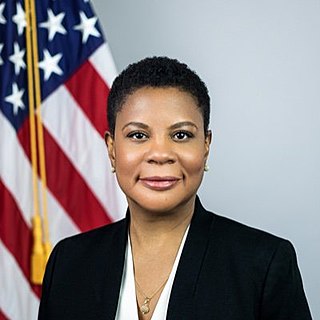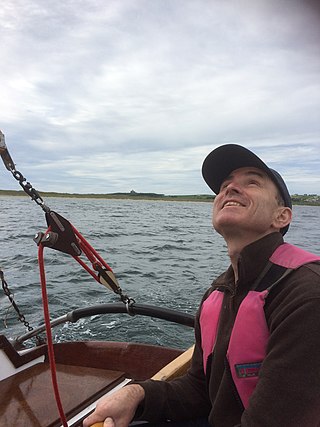Related Research Articles

Robert Cox Merton is an American economist, Nobel Memorial Prize in Economic Sciences laureate, and professor at the MIT Sloan School of Management, known for his pioneering contributions to continuous-time finance, especially the first continuous-time option pricing model, the Black–Scholes–Merton model. In 1997 Merton together with Myron Scholes were awarded the Bank of Sweden Prize in Economic Sciences in Memory of Alfred Nobel for the method to determine the value of derivatives.
Adele Eva Goldberg is an American linguist known for her development of construction grammar and the constructionist approach in the tradition of cognitive linguistics.
The Graduate School and University Center of the City University of New York is a public research institution and postgraduate university in New York City. Serving as the principal doctorate-granting institution of the City University of New York (CUNY) system, The CUNY Graduate Center is classified among "R1: Doctoral Universities – Very High Research Activity". The school is situated in the landmark B. Altman and Company Building at 365 Fifth Avenue in Midtown Manhattan, opposite the Empire State Building. The CUNY Graduate Center has 4,600 students, 31 doctoral programs, 14 master's programs, and 30 research centers and institutes. A core faculty of approximately 140 is supplemented by over 1,800 additional faculty members from CUNY's eleven senior colleges and New York City's cultural and scientific institutions.

Leon N. Cooper is an American physicist and Nobel Prize laureate who, with John Bardeen and John Robert Schrieffer, developed the BCS theory of superconductivity. His name is also associated with the Cooper pair and the BCM theory of synaptic plasticity.

The Herbert D. Katz Center for Advanced Judaic Studies at the University of Pennsylvania—commonly called the Katz Center—is a postdoctoral research center devoted to the study of Jewish history and civilization.

Avi Wigderson is an Israeli mathematician and computer scientist. He is the Herbert H. Maass Professor in the school of mathematics at the Institute for Advanced Study in Princeton, New Jersey, United States of America. His research interests include complexity theory, parallel algorithms, graph theory, cryptography, distributed computing, and neural networks. Wigderson received the Abel Prize in 2021 for his work in theoretical computer science.
Samuel Aaron Moyn is the Henry R. Luce Professor of Jurisprudence at Yale Law School and Professor of History at Yale University, which he joined in July 2017. Previously, he was a professor of history at Columbia University for thirteen years and a professor of history and of law at Harvard University for three years. His research interests are in modern European intellectual history, with special interests in France and Germany, political and legal thought, historical and critical theory, and Jewish studies.
Clifford Victor Johnson is a British theoretical physicist and professor at the University of California, Santa Barbara department of Physics.

Alondra Nelson is an American academic, policy advisor, non-profit administrator, and writer. She is the Harold F. Linder chair and professor in the School of Social Science at the Institute for Advanced Study, an independent research center in Princeton, New Jersey. From 2021 to 2023, Nelson was deputy assistant to President Joe Biden and principal deputy director for science and society of the White House Office of Science and Technology Policy (OSTP), where she performed the duties of the director from February to October 2022. She was the first African American and first woman of color to lead OSTP. Prior to her role in the Biden Administration, she served for four years as president and CEO of the Social Science Research Council, an independent, nonpartisan international nonprofit organization. Nelson was previously professor of sociology at Columbia University, where she served as the inaugural Dean of Social Science, as well as director of the Institute for Research on Women and Gender. She began her academic career on the faculty of Yale University.
Les Kaufman is an evolutionary ecologist specializing in the biology and conservation of aquatic ecosystems. He has special expertise in coral reef biology, the evolution and ecology of tropical great lakes fishes, and ecosystem-based management of marine resources.
Seth Schwartz is an American historian and the Lucius N. Littauer Professor of Classical Jewish Civilization at Columbia University. Schwartz earned a B.A. from Yeshiva University in 1979, and a Ph.D. from Columbia University in 1985.

David Bennett Madigan is an Irish-American statistician and academic. He is currently Provost and Senior Vice-President for Academic Affairs at Northeastern University. Previously he was Professor of Statistics at Columbia University. From 2013 to 2018 he was also the Executive Vice-President for Arts and Sciences and Dean of the Faculty of Arts and Sciences and from 2008 to 2013 he served as Chair of the Department of Statistics, both at Columbia University. He was Dean of Physical and Mathematical Sciences at Rutgers University (2005-2007), Director of the Institute of Biostatistics at Rutgers University (2003-2004), and Professor in the Department of Statistics at Rutgers University (2001-2007).
Kartik Chandran is an American environmental engineer at Columbia University, where he is a professor in the Department of Earth and Environmental Engineering. He primarily works on the interface between environmental molecular and microbiology, environmental biotechnology and environmental engineering. The focus of his research is on elucidating the molecular microbial ecology and metabolic pathways of the microbial nitrogen cycle. Applications of his work have ranged from energy and resource efficient treatment of nitrogen containing wastewater streams, development and implementation of sustainable approaches to sanitation to novel models for resource recovery. Under his stewardship, the directions of biological wastewater treatment and biological nutrient removal were established for the first ever time in the history of Columbia University.
Marina Halac is a professor of economics at Yale University. She is also an associate editor of Econometrica and a member of the editorial board of the American Economic Review. She was the 2016 recipient of the Elaine Bennett Research Prize, which is awarded biennially by the American Economic Association to recognize outstanding research by a woman. She received this award within the first seven years after completing her PhD in economics from the University of California, Berkeley. In 2017, she was named one of the "Best 40 under 40 Business School Professors" by Poets and Quants. She was a recipient of the George S. Eccles Research Award in 2017, which is awarded to the author of the best book or writings on economics that bridge theory and practice, as determined by top members of the Columbia Business School faculty and alumni.
Jelena Vučković is a Serbian-born American professor and Chair of the Department of Electrical Engineering at Stanford University, and a courtesy faculty member in the Department of Applied Physics at Stanford University. Vučković leads the Nanoscale and Quantum Photonics (NQP) Lab, and is a faculty member of the Ginzton Lab, PULSE Institute, SIMES Institute, and Bio-X at Stanford. She was the inaugural director of the Q-FARM initiative. She is a Member of the National Academy of Sciences, and a Fellow of The Optical Society, the American Physical Society and the Institute of Electrical and Electronics Engineers.
Gustavo A. Stolovitzky is an Argentine-American computational systems biologist. He is an IBM Fellow and the Director of the Translational Systems Biology and Nano-Biotechnology Program at IBM Research. He serves as the program director of the Thomas J. Watson Research Center's Translational Systems Biology and Nanobiotechnology Program, as well as an Adjunct professor of Genetics and Genomic Sciences at the Icahn School of Medicine at Mount Sinai and an Adjunct Associate Professor of Biomedical Informatics at Columbia University. His research has been cited more than 20,000 times
Robert Y. Shapiro is an American political scientist specializing in public opinion polling and statistical methods. He is the Wallace S. Sayre professor of government at Columbia University. He is the chair of the Roper Center for Public Opinion Research at Cornell University, president of the Academy of Political Science, editor of the Political Science Quarterly, and a former acting director of the Institute for Social and Economic Research and Policy at Columbia.
Xi Chen is a computer scientist. He is an associate professor of computer science at Columbia University. Chen won the 2021 Gödel Prize and Fulkerson Prize for his co-authored paper "Complexity of Counting CSP with Complex Weights" with Jin-Yi Cai.
Juliet Koss is an American art historian. She is the Gabrielle Jungels-Winkler Chair in the History of Architecture and Art at Scripps College.

Mohd Sapuan Salit is a material scientist, engineer, and the head of Advanced Engineering Materials and Composites (AEMC), a research centre in Universiti Putra Malaysia (UPM). He is a professor in composite material at the Department of Mechanical and Manufacturing Engineering, Faculty of Engineering, Universiti Putra Malaysia. Sapuan is also currently the Chief Executive Editor for all Pertanika journals.
References
- ↑ "Navin Kartik". www.columbia.edu. Retrieved 2022-11-20.
- ↑ "NAVIN KARTIK - CV" (PDF).
- 1 2 "Navin Kartik - Scholars | Institute for Advanced Study". www.ias.edu. 2019-12-09. Retrieved 2022-11-20.
- ↑ "Current Fellows". www.econometricsociety.org. Retrieved 2022-11-20.
- ↑ "Awards and Honors | Faculty of Arts and Sciences". fas.columbia.edu. Retrieved 2023-05-06.